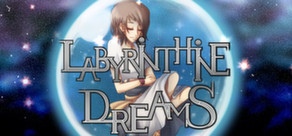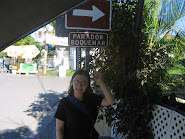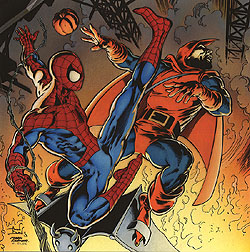
Brave New World (2000)
From here on out, we're in the fourth and final era of Iron Maiden. This album and the three after it are sometimes referred to as "post-reunion," and what a reunion it was. Several years after their departure, guitarist Adrian Smith and vocalist Bruce Dickinson asked Steve Harris if they could return to the band. In a surprising twist, guitarist Janick Gers (who had replaced Smith) was told he wasn't going anywhere and now the band would have three guys doing the shredding. Unfortunately, two vocalists wasn't as feasible so it was time for poor underrated Blaze Bayley to say goodbye. He left on good terms and remains friends with the band, evidenced by this good-humored discussion between him and Bruce.
After the commercial failure of Virtual XI, there was a lot riding on the success of this comeback album and you can tell the band is playing it a little safe. This has advantages and disadvantages. On the one hand, I can't think of any song on here that I would consider weak and the longer songs make it clear the band is holding on to some of the progressive influences of the Blaze era. But even the ten-minute monsters all have a really catchy chorus. However, the subsequent albums make it clear that the guys were holding back some of their depth and ambition and it's a little sad that this approach is considered a recipe for success. Still, there's no need to dwell on that. Critics and fans were ecstatic and Brave New World is a great listen.
 The cover of "The Wicker Man" puts Bruce's mug front and center, and the song announces the return of the classic lineup with exciting riffs and rampaging drums (Nicko really gives that snare a beating!). The lyrics don't seem to have much of a connection with the classic British horror film of the same name (and I'm NOT referring to the laughably ridiculous Nicolas Cage remake, this album came out before that), other than to suggest that the pagan ways of the past may return once humanity has destroyed most of our modern world. However, less importance is placed on the lyrics in comparison to the irresistable chorus and a fun sing-along finale that Bruce says was inspired by The Offspring.
The cover of "The Wicker Man" puts Bruce's mug front and center, and the song announces the return of the classic lineup with exciting riffs and rampaging drums (Nicko really gives that snare a beating!). The lyrics don't seem to have much of a connection with the classic British horror film of the same name (and I'm NOT referring to the laughably ridiculous Nicolas Cage remake, this album came out before that), other than to suggest that the pagan ways of the past may return once humanity has destroyed most of our modern world. However, less importance is placed on the lyrics in comparison to the irresistable chorus and a fun sing-along finale that Bruce says was inspired by The Offspring."Ghost of the Navigator" starts with a beautiful introduction and then the thundering bass drums kick off the main event. It sounds like double bass, but according to Nicko it isn't, which is pretty damn impressive. While some of the lyrics reference The Odyssey, I get the sense that the journey is more metaphorical than literal. Iron Maiden likes songs about seeking out new experiences and challenging your own preconceptions. As with "The Educated Fool" on the last album, the song stresses that you're never done learning, no matter your age.
In the midst of the album's bombast, it may take a few listens to appreciate the elegant simplicity of "Brave New World." Borrowing only loosely from Aldous Huxley's famous novel, the song is a sad, poignant reminder of how the world seems to bleed compassion and humanity as our technology gets better. The references to "dying swans...beauty not needed here" is a hard-hitting bit of imagery. The swan is synonymous with the grace of the animal kingdom, and if its demise is met with indifference, the world may have finally lost its soul for good. In an album that is sometimes lacking in feeling, this song offers some welcome passion.
Live performances have made the already affecting "Blood Brothers" far more powerful than the band had probably anticipated. The protagonist clings to his loved ones as the world seems to be collapsing around him. Those who listen to this album knowing the history of the band at this point are likely to appreciate the song on another level. This song has Steve Harris's style all over it and the melody and rhythms are impeccable. I do wish that the song had a little bit more lyrics - I feel like that would fleshed out the emotion a little more. With its lighter-waving vibe, the song has become an anthem of solidarity when the band goes on tour. The band has played it as a tribute to the late Ronnie James Dio, in support of those recently afflicted by disaster, or as an expression of the bond between the band and its fans.
As Bruce put it in his typical..unique manner.."There's something about [metal] that unites people, and it doesn't matter what color they are, what religion they are, whether they're purple with black spots, male, female, somewhere in between, dolphin...This is a safe house, this is OUR house, this is Maiden's house, everybody is fucking welcome and we don't turn anyone away, no matter who they are! If you put yourself down as Jewish or Muslim or Christian or Hindu or Jedi...above all that, we are all blood brothers!" Amen.
Janick has a writing credit on "The Mercenary," and this is an early example of what he began to bring to the band in this post-reunion era. He is geared towards short, tough little rockers which provides some nice balance, given that both Bruce and Steve tend to drift towards massive epics. The fandom has developed a consenus that this song is about the movie Predator, and while it wouldn't be out of character for the band, I can't find anything in the lyrics to confirm this. It suffers a little bit from that "repetition problem," but is still a solid song.
"Dream of Mirrors" is huge with the fans, and it's not hard to see why. The chorus is one of Maiden's most memorable and the whole thing is fun to sing along to. Still, I've never been totally convinced that the song justifies its massive nine and a half minute length. It's quite repetitive and the lyrics are less interesting than I'd expect from a song like this. It's like a longer, shallower version of "Infinite Dreams." I might be going a little overboard, feel free to tell me I'm full of shit because the song is undeniably fun to listen to.
"The Fallen Angel" starts with a nice Thin Lizzy esque intro, but other than that I've never found it hugely memorable. The titular angel is Azazel of Biblical lore and he is facing an impending apocalypse. I can't help but wonder what this one would have been like if it had been turned into a ten-minute epic where the band could have really ratcheted up the cosmic elements of the story. As it stands, it's sandwiched between two massive epics that are both more likely to stick in the mind of the listener.
"The Nomad" has it all. The three guitarists fire off a series of burly riffs while Dickinson belts out a soaring chorus. Some of the lyrics do get corny, the badassery of the title character is explored to Chuck Norris levels of goofiness. "Legend has it that you speak an ancient tongue, but no one's spoken to you and lived to tell the tale." However, what makes this underrated song a candidate for the album's best is the phenomenal middle section, which may be the most atmospheric three minutes in the band's discography. The listener is totally transported to the desert locale that the Nomad calls home. You would be forgiven for thinking that Iron Maiden brought in a string orchestra, but that's just great cooperation between the guitarists and some fine keyboard playing by Steve Harris. Getting to hear that awesome chorus one more time afterwards is just icing on the cake. This is how you do a nine minute song.
 Coming after that masterpiece, "Out of the Silent Planet" might seem downright regressive in its evocation of the galloping classics that defined Maiden's early years. But that would be missing the fun. The gentle Gallic-sounding intro only serves to make the subsequent rush more effective. The song gradually gets faster and faster, boasting superb drums, great solos, and lyrics which are surprisingly intricate. The finale demonstrates that the repetition definitely has its place when used well. The chorus continues on and on until the song has whipped itself into a head-banging frenzy. Easily the most flat-out fun song on the album.
Coming after that masterpiece, "Out of the Silent Planet" might seem downright regressive in its evocation of the galloping classics that defined Maiden's early years. But that would be missing the fun. The gentle Gallic-sounding intro only serves to make the subsequent rush more effective. The song gradually gets faster and faster, boasting superb drums, great solos, and lyrics which are surprisingly intricate. The finale demonstrates that the repetition definitely has its place when used well. The chorus continues on and on until the song has whipped itself into a head-banging frenzy. Easily the most flat-out fun song on the album."The Thin Line Between Love and Hate" closes the album on an interesting note. The lyrics are a bit simplistic, but that can be forgiven by the awesomely high notes Bruce hits during the chorus. He's still got it! Still, the real stars of this final track are Dave Murray, Adrian Smith and Janick Gers. Never mind the solid riffs and solos, the whole second half of this song is the most sophisticated use of the new "three guitar" sound on the album. It's pretty clear the band said "Hey, we've got all these guitars, let's have some fun!" If you listen after the gentle outro finally ends, you'll hear Nicko shout "Ah, I fucking missed it!" He believed he had missed the final drum note, but the band members start cracking up because he actually hadn't. I guess the guys kept that on there for lulz.
______________________________________________
Overall Strengths: A consistently catchy and enjoyable album, with the classic lineup back in place.
Overall Weaknesses: Not many, but some songs don't feel like the band at their best.
Recommended Tracks
Brave New World
Blood Brothers
The Nomad
Out of the Silent Planet
Next: Now firmly re-established, the band goes BIG with the epic "Dance of Death"







